Australia is waging a war of words with Russia. Foreign Minister Marise Payne has announced new sanctions on ‘propagandists and purveyors of disinformation’ who propagate false narratives about the alleged ‘de-Nazification of Ukraine’. It’s hardly a bold response. The claim, which was made by President Putin as justification for his invasion of Ukraine, is one of the easiest to debunk. After all, the notion that Volodymyr Zelensky, the first ever Jewish president of Ukraine, is heading a regime of Nazis is far-fetched even measured against Russian propaganda, which regularly tests the limits of credulity. While Australia’s sanctions have been enough to land it on a list of 27 unfriendly countries, the gesture is a symbol not of strength but weakness.
The perception of weakness is the single biggest contribution the West has made to preparing the path for Putin’s invasion. From its self-sabotaging climate policy, the ruinous over-reaction to the Covid virus and the self-loathing that is preached in educational and cultural institutions, the West has made itself look like the softest of targets.
As former Russian foreign minister Andrei Kozyrev tweeted last weekend, Putin was convinced that Biden was ‘mentally inept’ and the European Union was weak because of the ‘toothless’ sanctions they imposed after he seized Crimea in 2014. The most potent demonstration of Western weakness however was America’s ‘botched’ withdrawal from Afghanistan. It convinced Putin to expect a cakewalk into Kiev, like the Taliban taking back Kabul in 2021. Instead, it’s looking more like a repeat of the quagmire in which the Soviet army found itself in in Afghanistan in 1979, facing an insurgency that dragged on until the collapse of the Soviet Union forced a retreat.
Why? Putin overestimated Russia’s military strength. The Kremlin spent the last 20 years modernising its military, but thanks to endemic corruption much of the money was diverted into the Mediterranean mega-yachts of Russian oligarchs. Whether it was because Russia bought cheap Chinese tyres or because they were allowed to perish in the sun, Russian soldiers have abandoned their vehicles and the advance of the Russian army has crawled to a halt.
Putin also underestimated the Ukrainian determination to fight for their homeland, starting with the President who turned down a US offer of a flight out of Kiev and asked instead for ammunition. Compare that with the cowardice of Canadian President Justin Trudeau who fled into a bolt hole at the mere sound of trucks honking in Ottawa.
Absurdly, Putin blames the US and its European allies for his invasion of Ukraine. The Russian Ministry of Foreign Affairs even tweeted an article written by renowned American political scientist John Mearsheimer in 2014, conveniently called, ‘Why the Ukraine Crisis is the West’s Fault.’ It argues that ‘the taproot of the trouble is Nato enlargement’. Mearsheimer still holds this view, claiming last week that ‘the trouble’ started in April 2008, after the Nato Summit in Bucharest where ‘Nato issued a statement that said Ukraine and Georgia would become part of Nato’. In fact, at the time Putin said he was pleased that the alliance had decided not to invite Georgia and Ukraine to the Membership Action Plan.
April 2008 might be a convenient date for Mearsheimer and Russia, but the key date that made the invasion of Ukraine possible was 1994 when the country agreed to hand back its nuclear weapons, the third largest stockpile in the world. In return Russia, the US and the UK agreed to respect the ‘independence and sovereignty and existing borders of Ukraine’. Russia’s annexation of Crimea in 2014 and its invasion of Ukraine in 2022 are both flagrant violations of that agreement.
Russia and the realists claim that Nato and the EU have provoked Russia by expanding east. In truth, Putin is driving his neighbours to clamour to join Nato, lured not by Western blandishments but by Putin’s brutality.
Putin rose to power through a lethal combination of false flag attacks in Russia from the 1999 apartment bombings that he used to justify the invasion of Chechnya, to the 2002 Dubrovka Theatre hostage siege and the 2004 Beslan school massacre. His rule has been littered with so many political assassinations that opposition leader Alexei Navalny mocked him, saying, ‘There was Alexander the Liberator and Yaroslav the Wise. Now we’ll have Vladimir the Underwear Poisoner’, referring to the secret agents who smeared the lining of Navalny’s underwear with Novichok.
The proof that it is Putin who is driving the expansion of Nato is borne out by the dramatic increase in popular support in Finland to join the alliance from 19 per cent in 2017 to 53 per cent after the invasion of Ukraine. Sweden is also reported to be looking at joining Nato and Putin has threatened that both countries that their accession to Nato could have ‘detrimental… military and political consequences’.
Despite or because of these threats, former Finnish prime minister Alexander Stubb says it is no longer possible to ‘appease’ Putin. ‘The price we are paying in Europe is the rising cost of energy’, he says, adding, ‘I think it’s a small price to pay for freedom when you compare it to what Ukrainians are doing, paying with their lives right now.’
While Russia is giving the West a crash course in realpolitik, they are proving to be slow learners. US President Biden continues his loony toons energy policy; instead of reversing his bans on gas and oil exploration and on the Keystone XL pipeline, he is increasing imports from Saudi Arabia and from Russia’s ally, Venezuela.
Worse, the US, France, Germany, and the UK are days away from restoring the deeply flawed deal with Iran which will provide it with access to hundreds of billions of dollars in frozen assets. They will also start buying fuel from Iran even though it has been repeatedly shown to be actively developing nuclear weapons in direct contravention of the agreement.
China is watching all this intently. Having refused to criticise Russia since the invasion, this week, President Xi urged restraint and offered to ‘work actively’ with the international community as a mediator in efforts to end the war. For his part, Australia’s Scott Morrison stepped up his rhetoric calling on liberal democracies to stop an ‘arc of autocracy’ reshaping the world. Yes, Prime Minister. But Australia needs to rapidly acquire the military capacity to do more than wage a war of words.
Got something to add? Join the discussion and comment below.
Get 10 issues for just $10
Subscribe to The Spectator Australia today for the next 10 magazine issues, plus full online access, for just $10.
You might disagree with half of it, but you’ll enjoy reading all of it. Try your first month for free, then just $2 a week for the remainder of your first year.

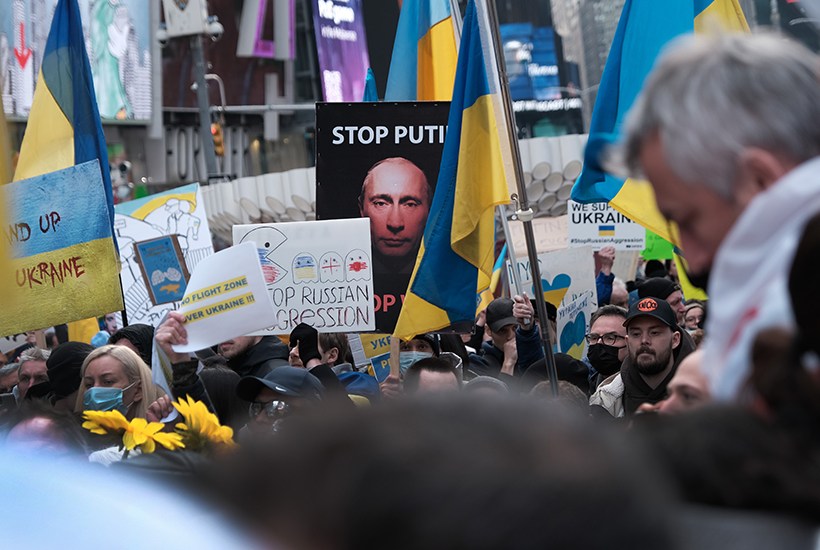
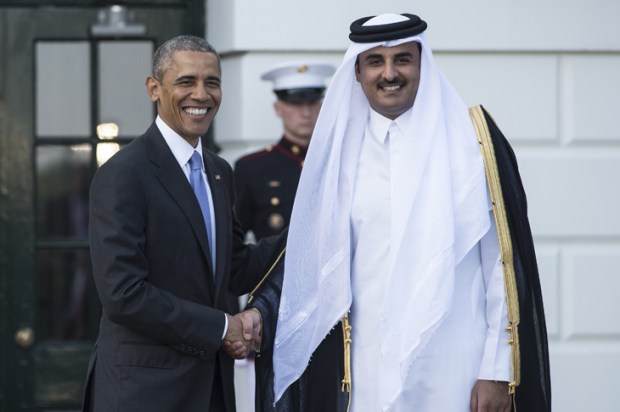
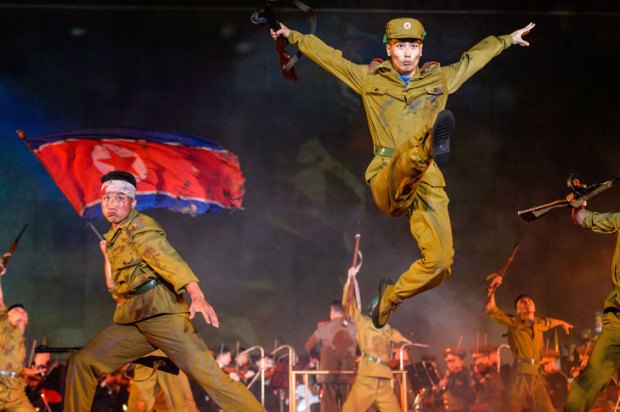
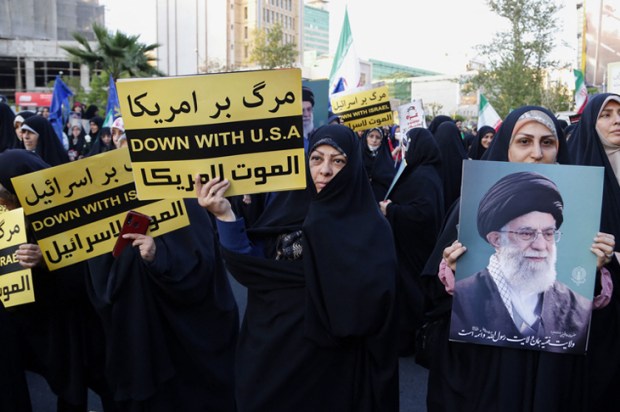
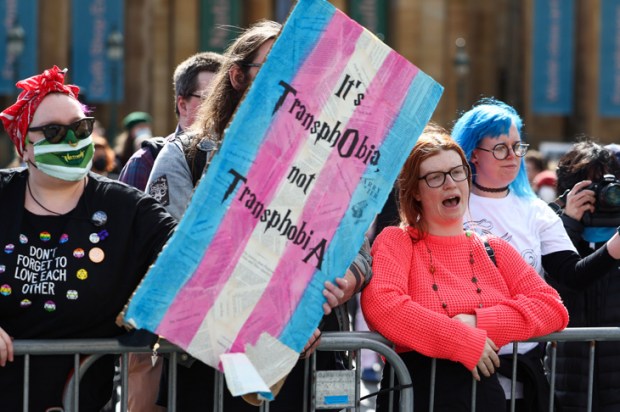








Comments
Don't miss out
Join the conversation with other Spectator Australia readers. Subscribe to leave a comment.
SUBSCRIBEAlready a subscriber? Log in